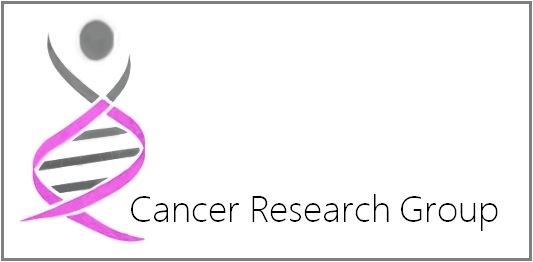
Group leader:
Professor Anna-Mart Engelbrecht

Biographic details:
Anna-Mart Engelbrecht is currently a professor in the Department of Physiological Sciences at Stellenbosch University. She completed a BSc (Hons) in Physiology at Stellenbosch University, a MMedSc at the University of the Free State and received her PhD in 2005 at Stellenbosch University. She received several prestigious awards which include the Dean's and Senate's Medals as well as the Gencor Bronze Medal from the University of the Free State, the Marie Curie Scholarship of the European Union, the Rector's award for Excellence in Research and the Vice-Rector's Research Award for exceptional achievement from Stellenbosch University as well as the Lasec Award for Excellence in Physiology Research from the Physiological Society of Southern Africa (PSSA). Twenty-one MSc and 18 PhD students completed the degrees under her supervision. She has published more than 100 peer-reviewed research articles and presented invited lectures at national and international conferences. She established the Cancer Research Group (CRG) where they investigate chemo-resistance and mechanisms to counteract chemotherapy-induced damage to the heart and skeletal muscle; markers for the early detection of cancer, as well as metabolic pathways in the cancer micro-environment.
Research Focus:
Cancer does not distinguish between race, gender, age or socioeconomic position; it is merciful to no-one and despite the political will driving a concerted global effort, only marginal progress has been made in the War against Cancer. One aspect which contributes to the poor progress in the management of cancer relates to the severe collateral damage associated with the current treatment strategies. Although anthracyclines such as doxorubicin has proven to be of the most successful approaches to cancer treatment, it induces various side effects such as nausea, vomiting, hematopoietic suppression and cumulative, dose-dependent cardiac toxicity. However, this is not the only challenge that researchers and clinicians are faced with; cancer cells are becoming increasingly resistant to chemotherapy-induced cell death. The specific focus of our research is to explore new avenues of chemotherapy and adjuvant treatments that would favour the use of lower chemotherapy concentrations with less side-effect to normal healthy cells, while maintaining satisfactory levels of cancer cell death.
Current Student's and Projects:
Improving cancer patient outcomes based on a personalized medicine approach


Dr Carla Eksteen - Researcher
Email: ceksteen@sun.ac.za
Carla is a dedicated and results-driven cancer researcher with seven years of experience across multiple cancer models. She built a solid academic foundation at Stellenbosch University and has remained dedicated to producing high-quality research while striving for strong academic performance. Passionate about understanding chemotherapy resistance, her work has focused on the role of the tumour microenvironment in treatment outcomes. More recently, expanding to explore tumour immunogenicity and its impact on therapeutic response. Committed to advancing precision oncology in South Africa, Carla is eager to contribute to its integration and evolution in the local healthcare landscape.
| Title | Authors | Conference | Date | City |
| The paracrine effects of fibroblasts on Doxorubicin-treated breast cancer cells. | C Fourie, Davis, T., Kriel, J & Engelbrecht, A-M | 1st CoBNeST conference | 7-10 October 2018 | Stellenbosch, South Africa |
| A role for Serum Amyloid A in NLRP3 inflammasome activation in Colitis-associated cancer | C Fourie, T Davis, WJS de Villiers & AM Engelbrecht | 28th annual congress of the EACR: Translating Biology to Medicine | 20 – 23 June 2022 | Sevilla, Spain |
| Investigating the effects of treatment resistance in cervical cancer patients. | C Fourie, FH van der Merwe, WJS de Villiers & AM Engelbrecht | 29th annual congress of the EACR: Innovative Cancer Science | 12 – 15 June 2023 | Torino, Italy |
| Improving cancer patient outcomes based on a personalized medicine approach | C Eksteen | 10th Annual BioHealth Capital Region Forum | 17 – 19 September | Rockville Maryland, USA
|
- 3rd prize for the Johnny van der Walt student poster at the first CoBNeST conference in Stellenbosch, South Africa (2018).
- DRD Travel grant, visit to Charles University Precision Oncology Centre, Czech Republic- methodology development (2022).
- Student division winner – Bio Centrifuge Africa – TASK, 17 July 2024. Invited to attend the 10th BioHealth Capital Region Forum (17-19th September 2024 in Rockville, Maryland, USA).
|
- Introductory course in Laboratory Animal Science: The ethics, care and use of animals for Scientific purposes (University of Cape Town-2018).
- Carnegie African Diaspora Fellowship Program, Precision Medicine Workshop, 9 – 10 February 2022, Stellenbosch, STIAS. Hosted by Dr. Britt Drögemöller, Assistant Professor, Department of Biochemistry & Medical Genetics, University of Manitoba, and Dr Galen Wright, Assistant Professor, Department of Pharmacology & Therapeutics, University of Manitoba.
- Beckman Coulter Oncology Flow Cytometry Workshop, 20 – 21 July 2022. Central Analytical Facilities, Stellenbosch University – Tygerberg Campus.
- Entrepreneurship Bootcamp, Innovus; Stellenbosch University. 12-13 September 2023.
- CREDE (Hennie Geldenhuys). Good Clinical Practice (GCP) Beginner Course (Level 2). 6-7 March 2024.
- Grant proposal writing fundamentals workshop, STIAS Stellenbosch – 1-day course, 10 April 2024. Presented by Riana Coetsee.
- Safety with Gases – Nitrogen Awareness, AFROX. 22nd of May 2024, Stellenbosch University. Presented by R A O' Reilly.
- Project Management workshop, STIAS Stellenbosch, 6th June 2024. Presented by Joubert van Eeden.
|
- Fourie C., Davis T., Kriel J & Engelbrecht A-M, 2018. The paracrine effects of fibroblasts on Doxorubicin-treated breast cancer cells. Experimental cell Research: 15; 381(2):280-287. Impact Factor: 3.3
- Fourie C., Davis T., Shridas P., De Villiers WJS & Engelbrecht A-M., 2020. Serum amyloid A and inflammasome activation: a link to breast cancer progression? Cytokine and Growth factor reviews; 59:62-70. Impact Factor: 7.6
- Fourie C., Du Plessis M., Mills J & Engelbrecht, AM, 2022. The effect of HIF-1 inhibition in breast cancer cells prior to Doxorubicin treatment under conditions of normoxia and hypoxia. Experimental Cell Research; 419: 113334. Impact Factor: 3.3
- Eksteen C, Riedemann J, Rass AM, et al. A Review: Genetic Mutations as a Key to Unlocking Drug Resistance in Cervical Cancer. Cancer Control. 2024; 31:10732748241261539. doi:10.1177/10732748241261539. Impact Factor: 3.3
|
The functional impact of a rare TP53 germline variant identified in breast cancer patients with the Li-Fraumeni-like syndrome.

Claudia Christowitz - PhD student.
Email: claudiac@sun.ac.za
Precision medicine has become an emerging approach for cancer treatment and can significantly improve patient prognosis and care. To this extent, a pathology-supported genetic testing (PSGT) framework was established in South Africa to enhance the clinical outcomes for breast cancer patients. This framework consists of a wellness survey, chemical pathology, histopathology reports, and genetic testing, including point-of-care screening, multi-gene panel testing and whole exome or genome sequencing (WES/WGS). However, the implementation of WES/WGS as a first-line screen is hampered by the frequent identification of variants of uncertain significance (VUSs). Therefore, the overall goal of her project was to establish a functional genomics pipeline to be incorporated into the PSGT framework and thereby improve the classification of rare or novel variants and enhance the clinical benefits of WES/WGS.
Recently, a rare TP53 germline variant (NM_001126114.2, c.1018A>G, p.N340D) was identified for the first time through WES in a South African patient who tested negative for BRCA1/2 founder variants and had a history of three primary invasive breast carcinomas. Further family screening using WGS and Sanger sequencing confirmed co-segregation of the variant with cancer on the maternal side of the family. In silico tools predicted the TP53 N340D variant as likely pathogenic, while protein modelling pointed toward altered protein structure that could impair protein function. However, functional studies were still required to confirm the variant classification. As such, the aim of her project was to investigate the functional impact of the variant on cell proliferation, cell death, senescence, migration, immune destruction, and cell signalling responses in peripheral blood mononuclear cells isolated from these patients, as a translational ex vivo model.
| Title | Authors | Conference | Date | City |
| The chemotherapeutic drug doxorubicin promotes tumour growth in vivo. | Christowitz, C., Davis, T., Engelbrecht, A-M. | 44th Annual Physiology Society of Southern Africa (PSSA) conference | August 2016 | Cape Town, South Africa |
| The functional impact of a rare germline TP53 variant identified in breast cancer patients. | Christowitz, C., Olivier, D.W., Engelbrecht, A-M. | 49th Annual PSSA conference | September 2022 | Stellenbosch, South Africa |
| A translational ex vivo model: Determining the functional impact of a rare TP53 germline variant identified in breast cancer patients. | Christowitz, C., Olivier, D.W., Van der Merwe, N., Kotze, M.J., Engelbrecht, A-M. | 1st Annual Faculty of Science Postgraduate Research conference | November 2022 | Stellenbosch, South Africa |
| Ex vivo studies of a rare TP53 germline variant (NM_001126114.2, c.1018A>G, p.N340D): Peripheral blood mononuclear cells completely resist cell death induced by the anthracycline, doxorubicin. | Christowitz, C., Olivier, D.W., Van der Merwe, N., Glanzmann, B., McGregor, N.W., Van Rensburg, E.J., Van der Merwe, N.C., Kotze, M.J., Engelbrecht, A-M. | 14th International Congress of Human Genetics | February 2023 | Cape Town, South Africa
|
- 72nd Lindau Nobel Laureate Meeting (Physiology/Medicine). June 2023. Lindau, Germany.
- Challenging Somatic Mutation Theory in Cancer – Viewing Tumours as Complex Adaptive System. 3rd Lindau Online Sciathon: Innovative Applications of Medical Research. 28-30 April 2023.
- Baden-Württemberg Post Conference Programme for Young Scientists (Digital Health: Artificial Intelligence and the Transition to Applied Sciences). 2023. Baden-Württemberg, Germany.
|
- Introductory Course in Laboratory Animal Sciences: The Ethics, Care and Use of Animals for Scientific Purposes. 2018. University of Cape Town, Cape Town.
- Mass Spectrometry Based Proteomics. 2018. CAF, Stellenbosch University, Cape Town.
- Cell Sorting on BD FACS Melody. 2019. CAF, Stellenbosch University.
- Introduction to Flow Cytometry Data Analysis in FlowJo. 2021. CAF, Stellenbosch University.
- Introduction to Image Analysis and Editing in FIJI/ImageJ. 2021. CAF, Stellenbosch University.
- Carnegie African Diaspora Fellowship Program: Precision Medicine. 2022. University of Manitoba, STIAS, Stellenbosch.
- Beckman Coulter Life Sciences and University of Stellenbosch: Oncology Flow cytometry. 2022. CAF, Stellenbosch University, Cape Town.
- Illumina: Genomics in Paediatric Care. 2023. Illumina, CTICC, Cape Town.
- Amire-Avizo Software Image Analysis. 2023. Thermo Fisher Scientific, Stellenbosch University, Cape Town.
- QuantStudio 3 & 5 Real Time PCR. 2023. Thermo Fisher Scientific, Stellenbosch University, Stellenbosch.
- Ubuntu Proteomics Summer School. 2024. DIPLOMICS, Johannesburg.
|
- Christowitz, C., Davis, T., Isaacs, A., Van Niekerk, G., Hattingh, S., Engelbrecht, A-M. 2019. Mechanisms of doxorubicin-induced drug resistance and drug resistant tumour growth in a murine breast tumour model. BMC Cancer, 19(757):1-10. DOI: 10.1186/s12885-019-5939-z. Impact factor: 3.4
- Christowitz, C., Olivier, D.W., Schneider, J.W., Kotze, M.J., Engelbrecht, A-M. 2024. Incorporating functional genomics into the pathology-supported genetic testing framework implemented in South Africa: A future view of precision medicine for breast carcinomas. Mutation Research - Reviews in Mutation Research, 793:1-13. DOI: 10.1016/j.mrrev.2024.108492. Impact factor: 6.4
|
Green synthesis, characterisation, and anticancer activity of gold nanoparticles using Dodonaea viscosa as a reducing agent.


Nireshini Reddy - PhD student.
Email: 18644538@sun.ac.za
An estimated 22% of women diagnosed with cancer in South Africa are afflicted with breast cancer. Current treatment options have many challenges, including severe adverse effects and chemoresistance. The rapidly growing field of nanotechnology has prompted great interest in its application for the diagnosis and treatment of cancers. Gold nanoparticles, particularly, have been widely investigated for their use in cancer therapeutics. The green synthesis approach is favourable in that it is cost-effective, sustainable, and makes use of plant materials used in traditional medicine. The selected plant for this study have already been shown to induce apoptosis in triple negative breast cancer cells. My study will use extracts of these plants to synthesis gold nanoparticles, in turn, imparting their anticancer properties to the nanoparticles. Therefore, the aim of my study is to investigate the applicability of green gold nanoparticles synthesised using aqueous extracts of D. viscosa for breast cancer treatment by using both in vitro and in vivo methods.
| Title | Authors | Conference | Date | City |
| Green synthesis, characterisation, and anticancer activity of gold nanoparticles using Dodonaea viscosa as a reducing agent | Reddy, N., Rambharose, S., Perold, WJ., Engelbrecht, A-M. | 1st Micro Manufacturing Convergence | July 2024 | Stellenbosch |
| An evaluation of hibiscus sabdariffa gold nanoparticles for the treatment of triple negative breast cancer | Reddy, N., Roux, S. | 22nd NanoAfrica Conference | September 2023 | Somerset West
|
- 3rd prize for the student poster at the 22nd NanoAfrica conference in Somerset West, South Africa.
|
- Introductory Course in Laboratory Animal Sciences: The Ethics, Care and Use of Animals for Scientific Purposes. 2022. University of Cape Town, Cape Town.
- Amire-Avizo Software Image Analysis. 2023. Thermo Fisher Scientific, Stellenbosch University, Cape Town.
|
miR-142-3p in Cervical Cancer: Investigating Tumour Suppression, Drug Sensitivity, and the Role of Extracellular Vesicles in Tumour Microenvironment Dynamics.

Michelle van der Merwe - PhD student.
Email: 20331193@sun.ac.za
Michelle is investigating the role of miR-142-3p in cervical cancer. While miR-142-3p is primarily characterized as a tumour suppressor, emerging studies suggest it may have a dual role in cancer, particularly within the tumour microenvironment. Intracellularly, miR-142-3p exerts tumour-suppressive effects by reducing cell proliferation, enhancing cisplatin sensitivity, and inhibiting metastasis. However, cancer cells can selectively export this miRNA via extracellular vesicles (EVs), a mechanism that may allow them to eliminate its suppressive influence. Once in the tumour microenvironment, miR-142-3p can paradoxically promote tumour progression by being transferred to endothelial cells and fibroblasts, where it enhances angiogenesis and cancer-associated fibroblast (CAF) activation, respectively. Michelle's research aims to deepen our understanding of miR-142-3p's complex role in cervical cancer, with the ultimate goal of identifying novel therapeutic strategies that could improve treatment outcomes.
| Title | Authors | Conference | Date | City |
| Role of miR-142-3p containing extracellular vesicles in promoting angiogenesis in cervical cancer | S. Gu, M. van der Merwe, R. Towle, C. Garnis | BC Cancer Summit | November 21-23, 2024 | Vancouver, Canada |
| The incorporation of melatonin in hormone replacement therapy: A potential strategy to decrease breast cancer risk | M. van der Merwe, M. du Plessis, A.M. Engelbrecht | physiological Society of Southern Africa (PSSA) | 4–7 September 2022 | Stellenbosch, South Africa
|
- Mitacs Globalink Research Award Recipient – Completed an internship at the BC Cancer Research Centre, Vancouver, under the supervision of Prof. Cathie Garnis (January – May 2024).
|
- Confocal Microscopy Course. 2024. University of Stellenbosch, Cape Town.
- Quanstudio 3 Smart start orientation training. 2023. University of Stellenbosch, Cape Town.
- Beckman Coulter Life Sciences and University of Stellenbosch: Oncology Flow cytometry. 2022. CAF, Stellenbosch University, Cape Town.
|
- Van der Merwe M, Van Niekerk G, Botha A, Engelbrecht AM. The onco-immunological implications of Fusobacterium nucleatum in breast cancer. Immunol Lett. 2021 Apr;232:60-66. doi: 10.1016/j.imlet.2021.02.007. Epub 2021 Feb 26. PMID: 33647328.
- van Niekerk G, van der Merwe M, Engelbrecht AM. Diabetes and susceptibility to infections: Implication for COVID-19. Immunology. 2021 Nov;164(3):467-475. doi: 10.1111/imm.13383. Epub 2021 Jun 24. PMID: 34115881; PMCID: PMC8446942.
- van der Merwe M, van Niekerk G, Fourie C, du Plessis M, Engelbrecht AM. The impact of mitochondria on cancer treatment resistance. Cell Oncol (Dordr). 2021 Oct;44(5):983-995. doi: 10.1007/s13402-021-00623-y. Epub 2021 Jul 9. PMID: 34244972.
|
Creating the foundation for a systems-based personalized medicine approach to cervical cancer diagnosis and treatment.

Atarah Rass - PhD candidate.
Email: 19142609@sun.ac.za
Cancer treatment has made significant strides, with immunotherapy emerging as a powerful tool to help the body's own immune system fight cancer. Breast cancer remains one of the most common cancers worldwide, yet not all patients are suitable candidates for immunotherapy. A major challenge is that some breast tumours, known as “cold tumours", lack sufficient immune cells to mount a strong immune response. Additionally, cancer cells have developed strategies to evade detection, suppress immune activity, and create a protective tumour microenvironment, making it even harder for the immune system to recognize and attack them.
My research focuses on making these tumours more immunogenic-increasing their ability to trigger a stronger immune response and improving their suitability for immunotherapy. One approach involves using specific chemotherapies to modify the tumour environment, attract immune cells, and expose hidden cancer cells to the immune system. I am also investigating the potential of Dodonaea Viscosa, a medicinal plant with traditional healing properties, to enhance immune responses against breast cancer.
By studying how chemotherapy and natural medicines influence the immune landscape of breast cancer, we aim to identify key markers that predict treatment success. Our goal is to develop more effective and personalized treatment strategies, ultimately improving outcomes for breast cancer patients and advancing the field of immunotherapy. Outside of academics, I am a writing consultant, writing workshop facilitator, and a freelance creative.
| Title | Authors | Conference | Date | City |
| Beyond Checkpoint Inhibitors: Combining Chemotherapy and Phytotherapy for Enhanced Tumour Immunogenicity | AMR. Rass, C. Eksteen, B. Loedolff, A.M Engelbrecht | EU-Africa PerMed Summer School | May 2024 | Nairobi, Kenya |
The tumour microenvironment: The effect of breast cancer on the endothelium | AMR. Rass, C. Eksteen, A.M Engelbrecht | 1ST SU Faculty of Science Postgraduate Research Conference | November 2022 | Stellenbosch, South Africa |
The tumour microenvironment: The effect of breast cancer on the endothelium | AMR. Rass, C. Eksteen, A.M Engelbrecht | Physiological Society of Southern Africa (PSSA) | September 2022 | Stellenbosch, South Africa
|
- Confocal Microscopy Course. 2024. Stellenbosch University, Cape Town.
- Good Clinical Practice (GCP) Beginner Course (Level 2). 2024. CREDE (Hennie Geldenhuys).
- Amira-Avizo Software Image Analysis. 2023. Thermo Fisher Scientific, Stellenbosch University & University of Cape Town, Cape Town.
- QuantStudio 3 & 5 Real Time PCR. 2023. Thermo Fisher Scientific, Stellenbosch University, Stellenbosch.
- 4TH Industrial revolution Skills – Communication Foundation. 2022. Twenty20Science
- Fundamentals of Deep Learning Certificates. 2022. School for Data Science and Computational Thinking, Stellenbosch University.
|
- Rass, AM., Eksteen, C. and Engelbrecht, A-M., 2024. Paracrine signalling in breast cancer: Insights into the tumour endothelial phenotype. Acta Histochemica, 126(5–7), p.152191. Available at: https://doi.org/10.1016/j.acthis.2024.152191
- Eksteen C, Riedemann J, Rass AM, et al. A Review: Genetic Mutations as a Key to Unlocking Drug Resistance in Cervical Cancer. Cancer Control. 2024; 31:10732748241261539. doi:10.1177/10732748241261539. Impact Factor: 3.3
|
The possible anti-cancer role of Allium sativum L. in combination with chemotherapeutic agent, 5-fluorouracil, on colon cancer.

Elizka van Heerden - PhD candidate.
Email: 21556229@sun.ac.za
Cancer presents as a major public health crisis worldwide with colorectal cancer (CRC) being one of the most common cancers among men and women. It is responsible for 9.4% of deaths worldwide and is the third most commonly diagnosed cancer. 5-Fluorouracil (5-FU) is a chemotherapeutic agent commonly used in the treatment of various cancers and is the treatment of choice for CRC. Although there are numerous strategies in action to fight CRC, none are capable of completely destroying this disease. The reasoning behind this is the fact that these strategies have limitations which lead to drug resistance and adverse effects on normal cells. Therefore, novel therapeutic options are consistently needed to improve cancer therapy and overcome current challenges. In recent times, the use of natural sources has become a popular concept worldwide. Natural products (NPs) show more favourable behaviour when compared to synthetic molecules, due to their biological properties. Recent studies linked the intake of garlic with a protective effect on a wide range of cancers, concluding that the health benefits of raw garlic are worth looking in to. Therefore, this study will investigate the possible relationship between administering garlic in combination with 5-FU, and the effect thereof in colon cancer patients.
| Title | Authors | Conference | Date | City |
| Novel combination therapy: Allium sativum L. with the chemotherapeutic drug, 5-Fluorouracil for colon cancer | E. van Heerden, C. Eksteen, C. H. Kaschula, J. Riedemann, A.M. Engelbrecht | 1st International Congress of the African Phytomedicine Scientific Society | 9-10 November, 2023 | Pretoria, South Africa |
| Novel combination therapy: Allium sativum L. with the chemotherapeutic drug, 5-Fluorouracil for colon cancer | E. van Heerden, C. Eksteen, C. H. Kaschula, J. Riedemann, A.M. Engelbrecht | 2nd SU Faculty of Science Postgraduate Research Conference | 30 November, 2023 | Stellenbosch, South Africa |
| Novel combination therapy: Allium sativum L. with the chemotherapeutic drug, 5-Fluorouracil for colon cancer | E. van Heerden, C. Eksteen, C. H. Kaschula, J. Riedemann, A.M. Engelbrecht | 3rd SU Faculty of Science Postgraduate Research Conference | 14 November, 2024 | Stellenbosch, South Africa
|
- 3rd SU Faculty of Science Postgraduate Research Conference - Third best poster presentation in Biological Sciences Category
|
- Beckman Coulter Life Sciences and University of Stellenbosch: Oncology Flow cytometry. 2022. CAF, Stellenbosch University, Cape Town.
- Introductory course in Laboratory Animal Science: The ethics, care and use of animals for Scientific purposes. 22 March-20 April 2023. University of Cape Town.
- CREDE (Hennie Geldenhuys). Good Clinical Practice (GCP) Beginner Course (Level 2). 5-6 October 2023.
- Zeiss Basics in Light Microscopy and Fluorescence Microscopy Webinar. 30 January 2024.
- SAVC Competency Training. 13-17 May 2024. Tygerberg Animal Facility.
- SAMRC Animal Imaging Seminar. 18 June 2024.
- CAF Confocal Microscopy Course. 1-2 October 2024. University of Stellenbosch, Cape Town.
|
An integrative approach to cancer treatment by combining chemotherapy with phytotherapy in breast cancer.

Janke van Eck - PhD candidate.
Email: 21687374@sun.ac.za
To this day, breast cancer remains a detrimental health burden being the most frequently diagnosed malignancy in women worldwide. Currently, conventional chemotherapeutic agents such as Doxorubicin (DXR) and Paclitaxel (PXT) are used to treat breast cancer patients. However, its use is associated with severe adverse effects, cardiotoxicity, and chemoresistance. Therefore, an urgent need for novel treatment regimens which are effective in inducing cancer cell cytotoxicity – paired with little adverse effects – has emerged. The field of phytotherapy has spiked considerable interest as a possible treatment avenue, with the hopes of improving clinical outcomes for cancer patients. Studies has linked Dodonaea viscosa with strong antioxidant and anti-inflammatory properties. Furthermore, the cytotoxic effects associated with D. viscosa could prove useful in promoting cell death in various cancers, raising the question whether combining conventional chemotherapies with phytotherapies could increase the efficacy of cancer treatment. Therefore, my project aims to investigate DXR and PXT in combination with D. viscosa and the effects thereof on breast cancer.
| Title | Authors | Conference | Date | City |
| An integrative approach to cancer treatment by combining chemotherapy with phytotherapy in breast cancer | J van Eck, C. Eksteen, C. H. Kaschula, A.M. Engelbrecht | 1st African Phytomedicine Scientific Society Congress | 9-10 November 2023 | Pretoria, South Africa |
| An integrative approach to cancer treatment by combining chemotherapy with phytotherapy in breast cancer | J van Eck, C. Eksteen, C. H. Kaschula, A.M. Engelbrecht | 2nd SU Faculty of Science Postgraduate Research Conference | 30 November, 2023 | Stellenbosch, South Africa
|
- 1st African Phytomedicine Scientific Society Congress – Silver Award (Second place) in the Poster Presentation Category
|
- Beckman Coulter Life Sciences: Oncology Flow cytometry. 20-21 July 2022. CAF, Stellenbosch University, Cape Town.
- Understanding Clinical Research: Behind the Statistics. 2022. University of Cape Town.
- Introductory course in Laboratory Animal Science: The ethics, care and use of animals for Scientific purposes. 22 March-20 April 2023. University of Cape Town.
- SAVC Competency Training. 8 -12 May 2023. Tygerberg Animal Facility at Stellenbosch University.
- Springer Nature Webinar: Open Access for South Africa. 19 July 2023.
- Zeiss Basics in Light Microscopy and Fluorescence Microscopy Webinar. 30 January 2024.
- CAF Confocal Microscopy Course. 1-2 October 2024. University of Stellenbosch, Cape Town.
|
Dual-targeted therapy: Novel interventions to inhibit metastasis and chemoresistance in cervical cancer.

Cayleigh de Sousa - PhD candidate.
Email: 22666990@sun.ac.za
Cancer cells are known for their aggressive nature and ability to spread rapidly around the body. Therefore, it is important to find new and improved ways to try and limit or even prevent this spreading from occurring. Therefore, my research is centred around investigating novel therapies to combat metastasis and chemoresistance in advanced-stage cervical cancer patients, two major challenges commonly faced in oncological treatment. I am specifically studying the chemo-sensitisation potential of the natural product resveratrol, as well as its potential to target CD44, a stem cell marker that promotes metastasis and chemoresistance within the tumour microenvironment. The goal of my work is to improve the quality of life for advanced-stage cervical cancer patients by enhancing the efficacy of chemotherapy, particularly carboplatin, through resveratrol's ability to sensitise cervical cancer cells and potentially reduce the dosage required, thereby minimising the toxic side effects of high-dose chemotherapy.
| Title | Authors | Conference | Date | City |
| The effects of chemotherapy on metastasis in cervical cancer using a personalised medicine approach | C de Sousa, C Eksteen, and AME Engelbrecht | Society for Advanced Cell Culture Modelling for Africa (SACCMA) conference | 9 -11 October 2023 | Potchefstroom, South Africa |
| The effects of chemotherapy on metastasis in cervical cancer using a personalised medicine approach | C de Sousa, C Eksteen, and AME Engelbrecht | Stellenbosch University Postgraduate Research Conference | 27 November 2023 | Stellenbosch, South Africa |
| Investigating the impact of CD44 on chemoresistance and metastasis in cervical cancer: Insights from ex vivo and in vitro models | C de Sousa, C Eksteen, M Bhaga, and AME Engelbrecht | Biomedical Research & Innovation Platform (BRIP) conference | 16 – 17 October 2024 | South African Medical Research Council (SAMRC), Cape Town, South Africa |
| Investigating the impact of CD44 on chemoresistance and metastasis in cervical cancer: Insights from ex vivo and in vitro models | C de Sousa, C Eksteen, M Bhaga, and AME Engelbrecht | Stellenbosch University Postgraduate Research conference | 14 November 2024 | South African Medical Research Council (SAMRC), Cape Town, South Africa |
| Investigating the impact of CD44 on chemoresistance and metastasis in cervical cancer: Insights from ex vivo and in vitro models | C de Sousa, C Eksteen, M Bhaga, and AME Engelbrecht | COMULISglobe conference | 20 – 21 January 2025 | Stellenbosch, South Africa
|
- 3rd place poster presentation award at the Society for Advanced Cell Culture Modelling for Africa (SACCMA) conference (2023).
- 2nd place poster presentation award at the Stellenbosch University Postgraduate Research conference (2024).
- Poster presentation award at the COMULISglobe conference (2025).
|
- CAF Confocal Microscopy Course. 1-2 October 2024. University of Stellenbosch, Cape Town.
- ABIC Bioimage analysis course (FIJI). 30-31 October. Stellenbosch University, Cape Town.
- Introduction to Real-Time PCR training Worksop (Separations). 26 February 2025. Online.
- 2024 SUN Data Science Workshop (Python). 09 September 2024. Online.
|
- de Sousa, C., Eksteen, C., Riedemann, J. and Engelbrecht, A.M., 2024. Highlighting the role of CD44 in cervical cancer progression: immunotherapy's potential in inhibiting metastasis and chemoresistance. Immunologic Research, pp.1-13. Journal impact factor: 3.3.
|
Novel applications of senolytics to prevent treatment resistance in cervical cancer.

Madré Meyer - PhD student
Email: 22550380@sun.ac.za
I am currently pursuing my PhD as part of the Cancer Research Group at Stellenbosch University. My research focuses on cervical cancer, the fourth most common cancer amongst women globally. It poses a major public health care burden, especially in low-to-middle income countries such as South Africa. This is largely due to high numbers of HPV infection rates along lack of access to screening and treatment facilities. Additionally, the high incidence of treatment resistance, primarily driven by the emergence of a senescent phenotype in cancer cells, significantly exacerbates the challenges in cervical cancer therapy by making these cells more difficult to kill. My research explores innovative combinations of conventional chemotherapies, such as carboplatin, with senolytic agents to selectively target and eliminate senescent, treatment-resistant cancer cells in both 2D and 3D co-culture models. Ultimately, this work aims to improve patient outcomes, reduce mortality, and alleviate public healthcare costs.
| Title | Authors | Conference | Date | City |
| Utilising personalised medicine to investigate the effects of senescence-induced treatment resistance in cervical cancer patients | M Meyer, C Eksteen, and AME Engelbrecht | Society for Advanced Cell Culture Modelling for Africa (SACCMA) conference | 9 -11 October 2023 | Potchefstroom, South Africa |
| Utilising personalised medicine to investigate the effects of senescence-induced treatment resistance in cervical cancer patients | M Meyer, C Eksteen, and AME Engelbrecht | Stellenbosch University Postgraduate Research Conference | 27 November 2023 | Stellenbosch, South Africa |
| Investigating novel combinations to combat senescence-induced treatment resistance in cervical cancer patients. | M Meyer, C Eksteen, and AME Engelbrecht | Biomedical Research & Innovation Platform (BRIP) conference | 16 – 17 October 2024 | South African Medical Research Council (SAMRC), Cape Town, South Africa |
| Investigating novel combinations to combat senescence-induced treatment resistance in cervical cancer patients | M Meyer, C Eksteen, and AME Engelbrecht | Stellenbosch University Postgraduate Research conference | 14 November 2024 | South African Medical Research Council (SAMRC), Cape Town, South Africa |
| Investigating novel combinations to combat senescence-induced treatment resistance in cervical cancer patients. | M Meyer, C Eksteen, and AME Engelbrecht | COMULISglobe conference | 20 – 21 January 2025 | Stellenbosch, South Africa
|
- SACCMA conference 2nd runner up for poster presentation, 2023.
- Golden Key award for academic achievement, 2020-2023.
- Helpmekaar Studiefonds 2nd runner up award for excellent academic achievement, 2023.
- Poster presentation award for COMULIS Globe conference 2025.
|
- CAF Confocal Microscopy Course. 1-2 October 2024. University of Stellenbosch, Cape Town.
- 2024 SUN Data Science Workshop (Python). 09 September 2024. Online.
|
- Targeting treatment resistance in cervical cancer: A new avenue for senolytic therapies, Advances in Medical Sciences, 2024.
|

Ngwedha Ndjene - PhD student
Email 28838602@sun.ac.za
Water contamination is a critical environmental and public health concern, particularly in low-resource settings and regions experiencing rapid industrialization and inadequate wastewater management. In South Africa, poor sewage treatment, acid mine drainage, and agricultural runoff have significantly degraded water quality (Atangana, 2023). Communities in affected areas rely on these contaminated water sources daily, increasing their exposure to harmful pollutants. Chronic exposure to these potential pollutants may contribute to mitochondrial dysfunction, leading to impaired ATP production, increased oxidative stress, altered immune cell function and other adverse health outcomes (Wallace, 2012; Picard et al., 2016). However, the cancer risks associated with exposure to the cumulative and synergistic effects of waterborne chemicals remain poorly understood. Therefore, this study will obtain environmental water extracts from sewage and acid mine impacted rivers in South Africa and tested in both ex vivo and in vivo models to assess the pollutant's impact on cancer-related mechanisms. Aiming to investigate the potential impact of waterborne chemicals on cancer initiation and progression, with the goal of informing water safety policies and cancer prevention strategies.
- Nanolive imaging system. Stellenbosch University 13 June 2024
- Animal Imaging System -SAMRC – 18 June 2024
- MS Excel for Research Data Management. Stellenbosch University 15 -22 July 2024.
- Springer Nature Webinar: Open Access for South Africa. 1 Aug 2024.
- SAVC Competency Training. 26-30 August 2024. Tygerberg Animal Facility at Stellenbosch University.
- Celvivo SACCMA - Artificial tissue Environment 12 Nov 2024
- Live cell imaging- Sartorius- 04 February 2025
|
The role of miR-142-3p-overexpressing cervical cancer cell-derived signals in inducing NETosis and the impact of NET components on cervical cancer progression

Lé-chandré Asja - MSc student
Email: 23820837@sun.ac.za
Cervical cancer remains a major health challenge, especially in low- and middle-income countries where access to HPV vaccination and screening is limited. While HPV is the primary cause, other factors in the tumour microenvironment also play a role in cancer progression. My research focuses on how cervical cancer cells influence neutrophils, the first responders of the immune system, by inducing a process called NETosis. During NETosis, neutrophils release web-like structures known as neutrophil extracellular traps (NETs), which can have both protective and harmful effects. I am particularly interested in how a small RNA molecule, miR-142-3p, secreted by cervical cancer cells, triggers NETosis and how NET components, in turn, affect cancer cell behaviour. The goal of my study is to better understand the molecular interactions between cancer cells and neutrophils, uncovering potential new targets for cervical cancer treatment. By studying these immune interactions, I hope to provide insights that could lead to novel therapeutic strategies for improving patient outcomes.
- CAF Confocal Microscopy Course. 1-2 October 2024. University of Stellenbosch, Cape Town.
|
Recent publications
- Targeting treatment resistance in cervical cancer: A new avenue for senolytic therapies. Meyer M, Fourie C, van der Merwe H, Botha H, Engelbrecht AM. Adv Med Sci. 2024 Nov 15;70(1):33-43. doi: 10.1016/j.advms.2024.11.001. Online ahead of print.PMID: 39549742 Review.
- Inflammation and thrombotic risk in late-stage cervical cancer: An exploratory study of coagulation and cytokine profiles in a South African cohort. Fourie L, Christowitz C, Eksteen C, van der Merwe H, Botha H, Venter C, Engelbrecht AM. Cytokine. 2024 Dec;184:156782. doi: 10.1016/j.cyto.2024.156782. Epub 2024 Oct 20.PMID: 39432949 Free article.
- Inflammation and Tumor Progression: The Differential Impact of SAA in Breast Cancer Models. Olivier DW, Eksteen C, Plessis MD, de Jager L, Engelbrecht L, McGregor NW, Shridas P, de Beer FC, de Villiers WJS, Pretorius E, Engelbrecht AM. Biology (Basel). 2024 Aug 23;13(9):654. doi: 10.3390/biology13090654.PMID: 39336082 Free PMC article.
- Paracrine signalling in breast cancer: Insights into the tumour endothelial phenotype. Rass A, Eksteen C, Engelbrecht AM. Acta Histochem. 2024 Oct;126(5-7):152191. doi: 10.1016/j.acthis.2024.152191. Epub 2024 Aug 30.PMID: 39216306 Free article.
- A Review: Genetic Mutations as a Key to Unlocking Drug Resistance in Cervical Cancer. Eksteen C, Riedemann J, Rass AM, Plessis MD, Botha MH, van der Merwe FH, Engelbrecht AM. Cancer Control. 2024 Jan-Dec;31:10732748241261539. doi: 10.1177/10732748241261539.PMID: 38881031 Free PMC article. Review.
- Highlighting the role of CD44 in cervical cancer progression: immunotherapy's potential in inhibiting metastasis and chemoresistance. de Sousa C, Eksteen C, Riedemann J, Engelbrecht AM. Immunol Res. 2024 Aug;72(4):592-604. doi: 10.1007/s12026-024-09493-6. Epub 2024 May 31.PMID: 38816670 Free PMC article. Review.
- Incorporating functional genomics into the pathology-supported genetic testing framework implemented in South Africa: A future view of precision medicine for breast carcinomas. Christowitz C, Olivier DW, Schneider JW, Kotze MJ, Engelbrecht AM. Mutat Res Rev Mutat Res. 2024 Jan-Jun;793:108492. doi: 10.1016/j.mrrev.2024.108492. Epub 2024 Apr 15.PMID: 38631437 Free article. Review.
- The impact of endocrine disrupting compounds and carcinogens in wastewater: Implications for breast cancer. du Plessis M, Fourie C, Stone W, Engelbrecht AM.Biochimie. 2023 Jun;209:103-115. doi: 10.1016/j.biochi.2023.02.006. Epub 2023 Feb 11.PMID: 36775066 Review.
- Obese mammary tumour-bearing mice are highly sensitive to doxorubicin-induced hepatotoxicity. Sedeman M, Christowitz C, de Jager L, Engelbrecht AM. BMC Cancer. 2022 Nov 30;22(1):1240. doi: 10.1186/s12885-022-10189-z.PMID: 36451148 Free PMC article.
- A functional role for Serum Amyloid A in the molecular regulation of autophagy in breast cancer. du Plessis M, Davis TA, Olivier DW, de Villiers WJS, Engelbrecht AM. Front Oncol. 2022 Sep 30;12:1000925. doi: 10.3389/fonc.2022.1000925. eCollection 2022.PMID: 36248994 Free PMC article.

